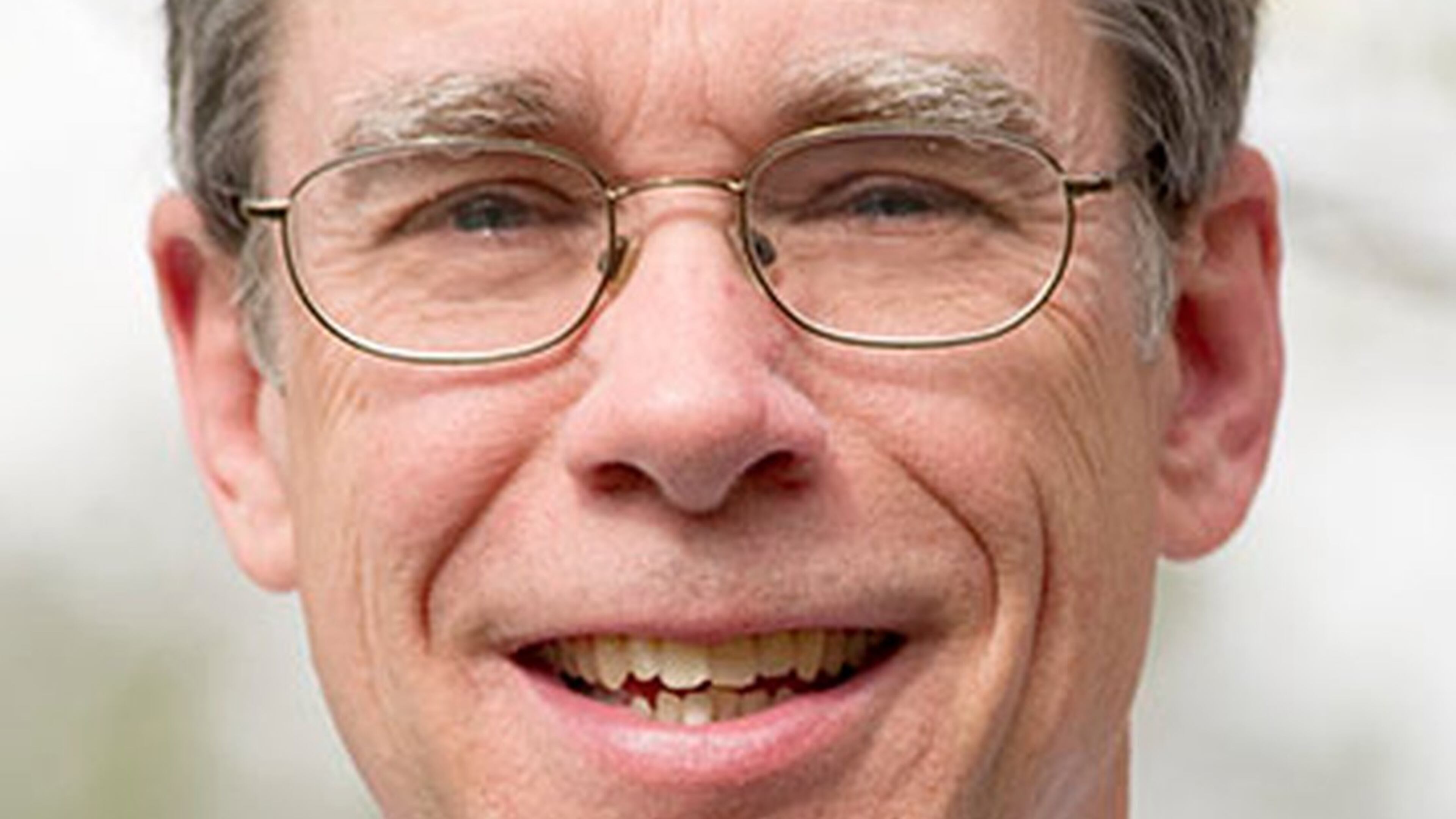Descendant of slave owners pastors predominantly black congregation

Even before entering Forest Park’s Lake City Elementary Jeff Lowe had an atypical appetite for the American Civil War. Like any little boy he loved collecting rocks, except his came from Civil War battle sites like Jonesboro, Chickamauga, Lookout Mountain and wherever else his family took vacations.
During a first grade show-and-tell session Lowe told his class that his great-great grandfather Marion Fitzpatrick fought for the Confederacy in part to free the slaves. After school his teacher pulled him aside and explained he was slightly “confused,” though she couldn’t precisely articulate the point.
“You will understand when you get older,” she concluded.
A white southerner with Georgia roots dating back seven generations, Lowe’s now been a Baptist preacher for 33 years. For the past 22 he’s been senior pastor at First Baptist Riverdale a church, like the city, that’s had a demographic upheaval the last two decades.
Born in 1955 Lowe grew up in Clayton County when it was predominantly white, traipsing over terrain where one of the war’s most critical battles was fought in August and September 1864. He was a scholar prodigy, devouring everything he could get his hands on, including Shelby Foote’s three-volume “The Civil War,” which he read twice before entering college.
In 1998 he and his cousin, the journalist/novelist Sam Hodges edited and published the 101 letters Marion Fitzpatrick, a teacher and farmer in central Georgia, wrote to his wife Amanda from 1862 to 1865 (“Letters to Amanda: The Civil War Letters of Marion Hill Fitzpatrick, Army of Northern Virginia”).
Fitzpatrick served in most of that army’s campaigns, and his remarkable letters include graphic accounts of grisly battles, yearning for home and family, and the central role of religion in mid 19th century America. On March 31, 1865, his right thigh was shattered by rifle shot and he died several days later.
“Marion didn’t own slaves himself,” Lowe said. “But his mother owned three and his father 12. He was part of a slave-owning generation and there’s just no way to get around that.”
Three years before the book’s publishing Lowe took the job at First Baptist, which then ran about 100 to 120 attendees for Sunday service. There was one black family, which had been told several times before Lowe’s arrival that they weren’t welcome.
But that family stayed, as Lowe wound up doing. Meantime Riverdale’s population went from about 85 percent white to 35 percent white in a few years as Atlanta demolished most of its housing projects before and after the Olympics.
There were periods of personal turmoil, as Lowe contemplated leaving, or closing the church altogether — two other Riverdale Baptist churches were shuttered after his arrival. He even thought about hiring a black associate to groom as his successor.
“The diversity didn’t happen here because of any plan,” Lowe said. “We opened our doors and accepted anyone.”
Although currently down to 65 attendees for Sunday service and 40 for Sunday school, Lowe feels First Baptist has finally become stable in the last two years. He believes it has better assimilated itself into the surrounding community, particularly through summer camps and vacation bible school. He says it’s been at least 15 years since anyone’s left for racial reasons.
Currently his congregation is about half white, the other half comprised of African Americans, Nigerians, Jamaicans, Guyanese and South Americans. What Lowe could’ve never envisioned when he left Louisville’s Southern Baptist Theological Seminary in 1980 is that he’s now a member of a predominantly African American ministerial association.
Lowe can still wax eloquently about war strategies and the epic cast of characters. But his studies and some 200 Civil War volumes long ago took a distant back seat to church and family, which now numbers his wife, two grown children and an 18-month old grandchild.
Nevertheless he has followed with compounded emotions the raging controversy surrounding Confederate monuments since Charlottesville.
He believes that many, like the one in Decatur—which may prove the first to test state law—should get moved from public squares to a cemetery. But he also believes those monuments are “symbols” of a complex narrative.
“It’s a fact white supremacy ruled the land, north and south,” he said. “It’s also a fact one fourth of the men who served in the Confederacy never came back. Both sides during the war were full of devout, good Christians. So how could one side fight to maintain slavery?”
Remembering what his first grade teacher said long ago, Lowe shook his head.
“It’s still confusing,” he said. “I’m grown up now but it remains a hard issue to understand.”

